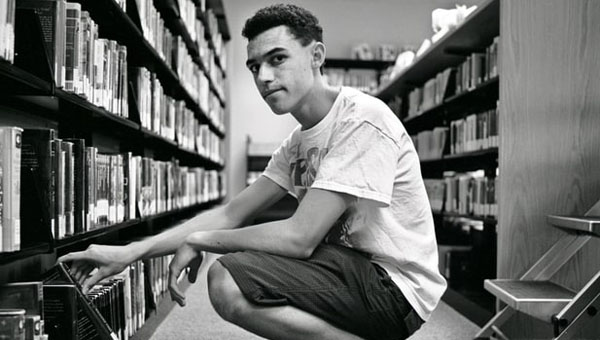ITHACA, New York (Thursday, March 4, 2021) — Having college-bound friends increases the likelihood that a student will enroll in college, but that effect is diminished for Black and Latino students, compared with White and Asian students, according to new research from Cornell University.
This is the case, especially for males, and especially for selective and highly-selective colleges, due to structural and cultural processes, according to sociology professor, Steven Alvarado.
Alvarado said he has long been fascinated by the idea that placing disadvantaged and minority students in higher socioeconomic and achievement settings, can help them excel in school.
This study, “The Role of College-Bound Friends in College Enrollment Decisions by Race, Ethnicity, and Gender” — published, today, in the American Educational Research Journal — is part of a series of research papers that test whether having friends, who plan to go to college, is associated with college-going behavior.
“Friends may directly encourage and motivate one another to study hard, focus and remain on a college path, throughout high school,” Alvarado proferred. “Friends also provide companionship and camaraderie that may ease the oftentimes-isolating academic path to college, during adolescence.”
To quantify how much friendship influences college enrollment for specific groups, Alvarado analyzed data, from the U.S. Department of Education’s High School Longitudinal Study of 2009, a nationally representative survey of approximately 24,000 students, who were followed and surveyed through college.
The survey asked students in 11th grade: “How many of your close friends plan to attend a four-year college?”
Alvarado found that for all students combined, having college-bound friends increased the probability of enrolling in any college by six points. Yet, Black and Latino students benefited less than white and Asian students. The gap was starker for male students than female and, as the colleges became more selective.
According to Alvarado, Black and Latino students often internalize negative stereotypes from the wider society about their educational ability. They may also reject an educational system that often marginalizes them.
In these ways, both the supply of, and the demand for, college-bound friends may be diminished by structural discrimination that Black and Latino students deal with, every day.
Among the potentially-effective strategies for improving college enrollment rates for Black and Latino students, is for schools to think of ways to better incorporate Black and Latino families in the college-going process.
 Pride News Canada's Leader In African Canadian & Caribbean News, Views & Lifestyle
Pride News Canada's Leader In African Canadian & Caribbean News, Views & Lifestyle





